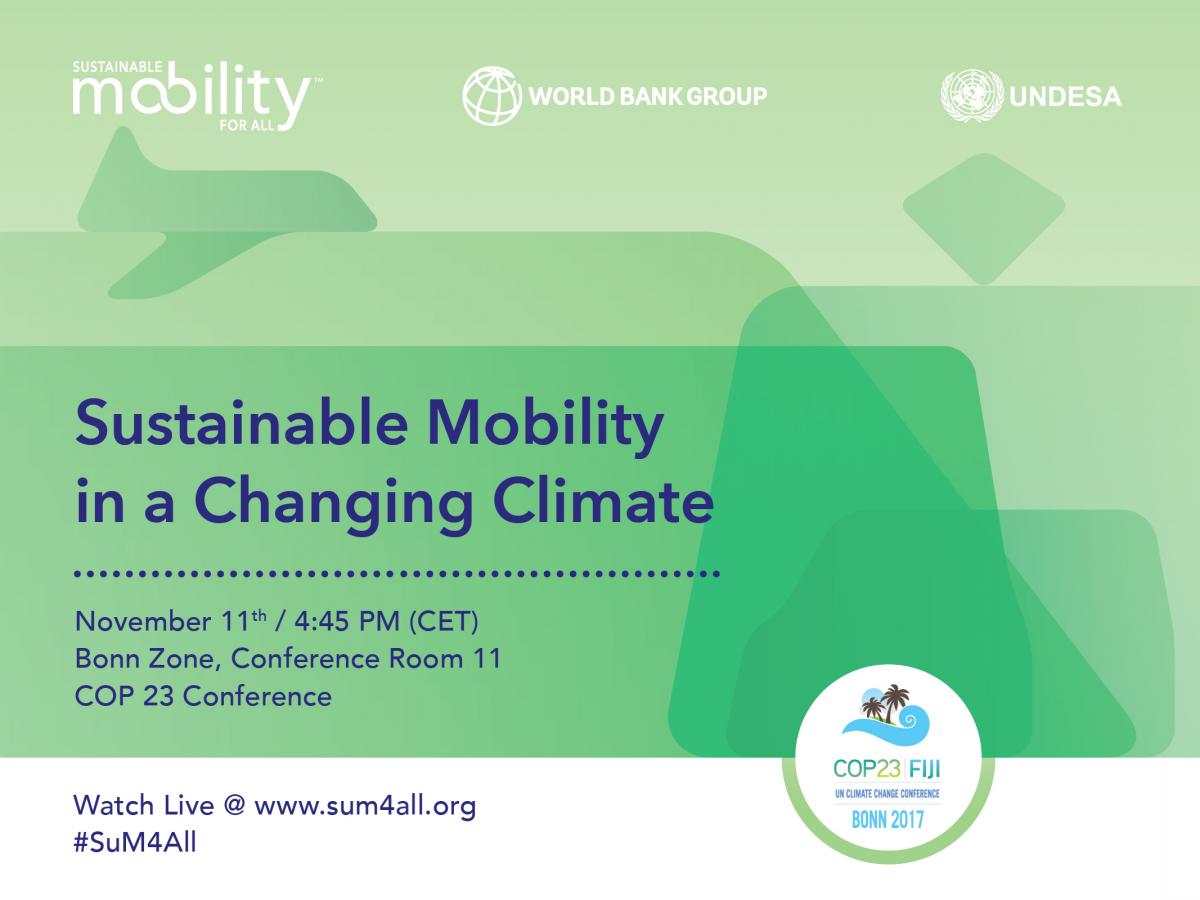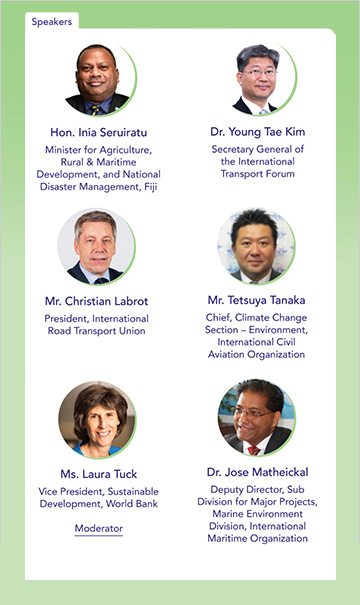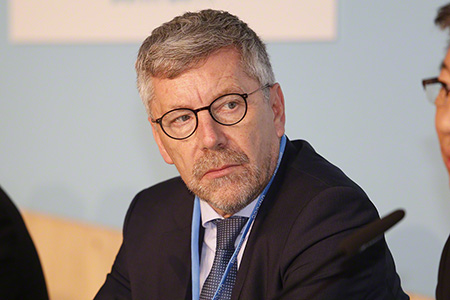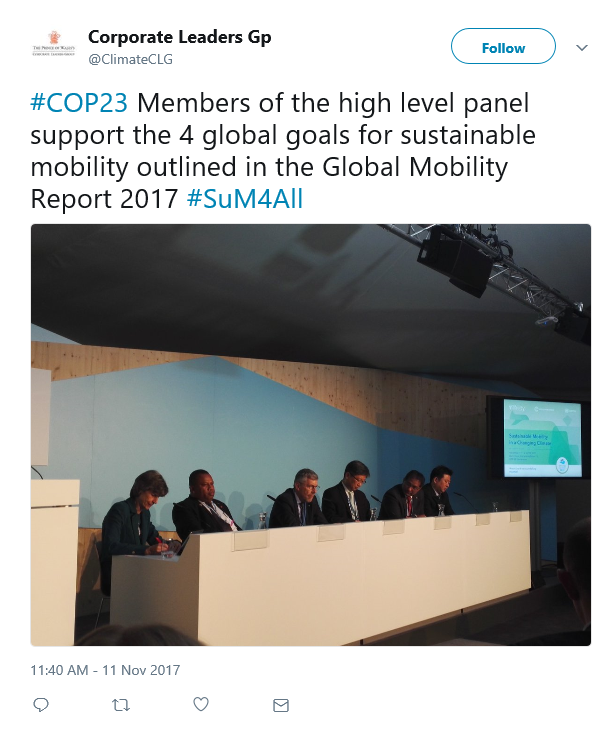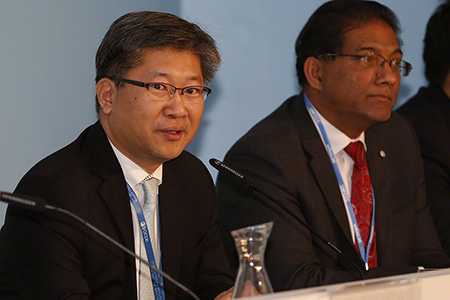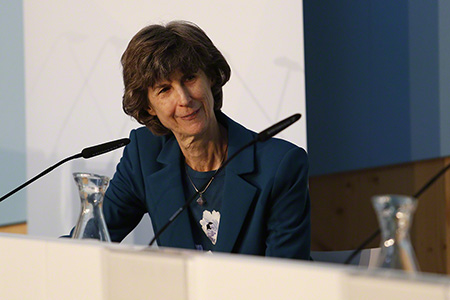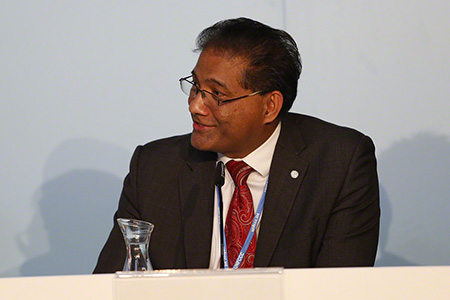SuM4All @ COP 23
COP 23 Conference, Bonn, Germany
Moderated by Laura Tuck, World Bank, this side event discussed mobility as a central element to transform global economies and help the most vulnerable live in a more sustainable world considering that the transport sector contributes 23% of GHG emissions.
In the opening remarks, Nancy Vandycke, World Bank, presented key findings of the Global Mobility Report 2017. She stressed how mobility is under pressure in a changing world, where pollution takes a toll on citizens’ health, and highlighted fragmentation in the transport sector and the need to avoid duplication of work. Saying that “the transport we have today is not the one we want,” she called for more united advocacy, action and financing to make “sustainable mobility for all” a reality. She also emphasized the need to reposition the sector as a solution for regional integration and sustainability, health improvement and Sustainable Development Goal (SDG) synergies. She announced efforts to develop a global roadmap of actions, private financiers and a list of country champions.
Through a video message, Jean Todt, UN Special Envoy for Road Safety, said that transportation is a key avenue to move implementation of the Paris Agreement forward.
Inia Seruiratu, Minister for Agriculture, Rural and Maritime Development and National Disaster Management and Meteorological Services, Fiji, called for equitable, safe and greener mobility, while praising the Sum4All initiative. He stressed the need for factual evidence to convince decision makers to act on transport to go “further, faster, together” adding that small island developing states (SIDS) are highly dependent on more efficient modes of transportation. He said technology must be scalable and linked to technical examinations, and that designing new transport policies presents economic opportunities.
Young Tae Kim, Secretary-General, International Transport Forum (ITF), emphasized the need for transportation to be inclusive, socially oriented, technically driven, cleaner, safer and security oriented. Speaking about ITF’s work, he declared that his organization is the only one to cover almost all types of transportation, noting the need to avoid duplication of work. He emphasized institutional challenges in decision making on transportation, lamenting that “in reality” coordination remains problematic due to conflicts of interest between central and local governments.
Christian Labrot, President, International Road Transport Union (IRU), said the report provided a key opportunity to conduct cooperative work with all transport stakeholders. Noting that the transport sector is at a crossroads given the need to act on climate change, he said that new technologies can help the sector to meet its new target of a 30% reduction in GHG emissions by 2030. On challenges, he indicated the need to recognize the role of commercial vehicles as polluters, especially in a globalized economy. He highlighted the importance of training for transport operators on new safety standards and more efficient fuel use practices.
Tetsuya Tanaka, International Civil Aviation Organization (ICAO), congratulated the four Global Mobility Report goals of safe, accessible, clean and secure transport, and said that while safety cannot be compromised to cut emissions, ICAO members have agreed on a carbon off-setting scheme from 2020 onwards.
Jose Matheickal, International Maritime Organization (IMO), provided his views on the Global Mobility Report, and considered the “right approach to track progress” on the transport sector. He said that some areas might need more data, noting that shipping is not an easy area for data collection. He noted successful public-private partnerships within the maritime sector and said that new global roadmaps can ensure better synergies among key stakeholders.
In the ensuing debate, panelists raised challenges related to: the need to balance economic growth with cleaner transportation; clean technologies; the relationship between climate change and sustainable mobility; lack of cooperation among air, maritime and road transportation; and weak implementation of global targets at the national level.
Photos & Summary Credits: IISD Reporting Services


